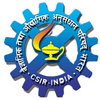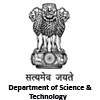|
|
 |
 |
 |
 |
||
| Process Chemistry & Chemical Engg Overview | |
|
•The Process Chemistry and Chemical Engineering Department was established for the intention of providing scientific and technical backup and support to the researchers, scientists, entrepreneurs, industries and farmers in the area of processing of medicinal and aromatic plants. •The department is working on extraction and isolation of lead molecules for bioactive studies, pilot scale evaluation of new varieties, up scaling of process technologies for techno economic evaluations, designing of extraction and distillation units for farmers, industries and entrepreneurs and transferring of technologies to the industries. •The department is also doing R&D on value added bio-chemicals production from spent aromatic (lignocellulosic) biomasses. |
|
| Microbial Technology & Nematology Overview | |
|
Microbial Technology and Nematology Department is a close-knit and dynamic department that deals with plant associated microorganisms like bacteria, fungi, AMF and nematodes especially those which are beneficial for the plants. Microorganisms benefit agriculture by cycling organic and inorganic matter into useful molecules needed by the plants. The major objective of our department is to utilize strength of microbes (capable of producing siderophores, hormones, cellulase, chitinase, PSB, antibiotics etc.) and use these as bioinoculants to enhance the plant health and yield. The department also focuses on endophytes which have the capability to modulate biosynthetic pathways and can improve the content of the same in medicinal and aromatic plant. The other area of work is to look for microbes which can enhance tolerance of the plants to abiotic stresses like salt, flood, draught and soils contaminated with heavy metals. The department is also engaged in developing microbial technologies to manage plant diseases caused by variety of pests and pathogens. Apart from the contributions of Microbiology to plant health, another important area where our department is engaged to discovery of range of new plant based anti-ageing and age related disorders like parkinson and alzheimer compounds. Our studies have successfully demonstrated the versatility of Caenorhabditis elegans (C. elegans) soil nematode model system in compound screening, drug target identification and in deciphering mechanisms of drug action and many natural compounds having potential to delay ageing. |
|
|
|
|
| Plant Pathology Overview | |
|
The focus of Plant Pathology department is investigations on the outbreak of new and important diseases caused by fungal, bacterial, viral, phytoplasma and ergot production. The department studies in detail on the epidemiology and etiology of the diseases through classical and molecular approaches. We try to understand the mechanism of susceptibility and resistance through production, isolation and characterization of phytotoxins and enzymes by the pathogen and accumulation of phytoalexins, PR proteins by the host in response to infection. The potential and utilization of beneficial microbes for the development of biofertilizers and biopesticides are also explored. The department is currently working on management of diseases by developing diagnostic kit, application of bioinoculants, botanicals and chemicals for the farmers and entrepreneurs. In addition, department is exploring bioactive phytochemicals against storage insects, field crop insects and insect-pests of public health importance. |
|